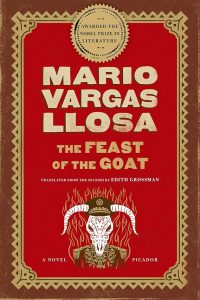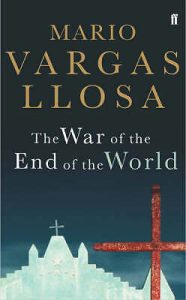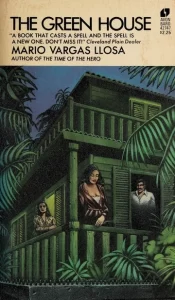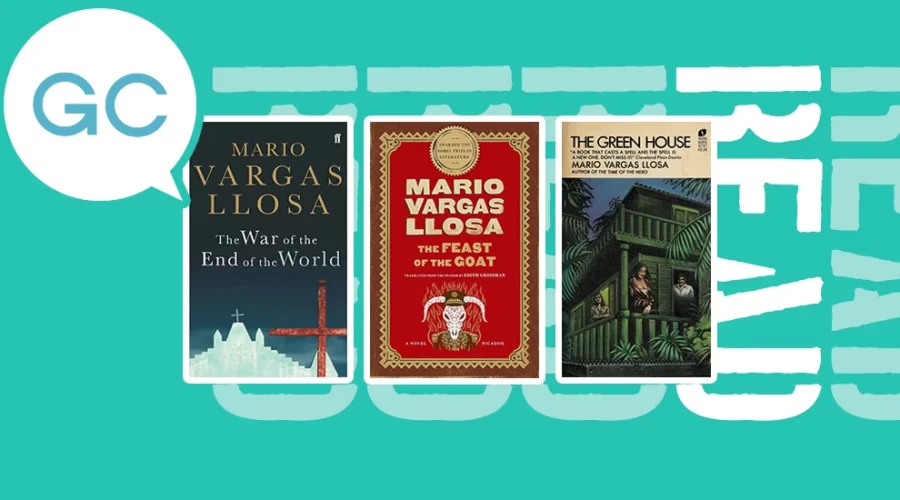His novels dissect power, corruption, love and freedom with boldness and precision. As a journalist, essayist and storyteller, his influence transcended language and borders.
This month, we honor his memory through the pages of his unforgettable books — stories that continue to challenge, provoke and inspire.
The Feast of the Goat, Mario Vargas Llosa
 Novel
Novel
Published: 2000
Pages: 416
Author’s nationality: Peru
Through a narrative that shifts between perspectives, Vargas Llosa constructs a dense and haunting portrait of authoritarianism, where fear, blind obedience and sexual violence are tools used to control an entire nation.
More than a historical reconstruction, this is a profound exploration of the scars left by dictatorship on both personal and collective memory.
The precision of detail, the narrative pace and the psychological depth of his characters make this novel one of the most powerful literary condemnations of tyranny in contemporary Spanish-language literature.
Who’d like this?
This book is a perfect choice for readers looking for more than just a story — it’s for those interested in politics, Latin American history and the psychology of power.
It will particularly appeal to readers who enjoy intense narratives, complex characters, and morally charged settings.
Quotes
- “Perhaps it was true that because of the disastrous governments that came afterward, many Dominicans missed Trujillo now. They had forgotten the abuses, the murders, the corruption, the spying, the isolation, the fear: horror had become myth. Everybody had jobs and there wasn’t so much crime.”
- “An open book is a mind that speaks; closed, a friend who waits; forgotten, a soul that forgives; destroyed, a heart that weeps.”
Readers say
- “Great insights into the macabre mind of a dictator!”, says an Amazon user.
- “This is one of the best novels I’ve read in many years. It isn’t a recent one, but it is timely”, says an Amazon user.
War of the End of the World, Mario Vargas Llosa
 Novel
Novel
Published: 1981
Pages: 576
Author’s nationality: Peru
This is one of Mario Vargas Llosa’s most ambitious novels, both in its historical scope and its complex narrative structure. The novel is based on a real conflict that took place in Brazil at the end of the 19th century: the War of Canudos.
Vargas Llosa reconstructs this episode through multiple perspectives — peasants, journalists, soldiers and religious figures — capturing the brutality of the conflict and the deeper tensions between faith and reason.
Through precise language and a polyphonic narrative, the Peruvian author transforms this Brazilian episode into a universal reflection on fanaticism, marginalization and the cruelty with which power crushes dissent.
It stands as a testament to Vargas Llosa’s narrative mastery and as a key work for understanding how literature can shed light on some of the darkest corners of Latin American history.
Who’d like this?
It’s ideal for those interested in exploring the roots of fanaticism, social struggles and the tensions between power and resistance through a deeply literary lens.
The book will also appeal to readers curious about Latin American history and how forgotten past conflicts can be portrayed with both force and sensitivity.
Quotes
- “Science is still only a candle glimmering in a great pitch-dark cavern.”
- “A Criminal is the case of surplus of human energy directed in the wrong direction.”
Readers say
- “It is very difficult to describe this long, amazing novel. It has many of the qualities of Tolstoy’s War and Peace, of Victor Hugo’s Les Miserables, and of Marquez’s Hundred Years of Solitude,” says an Amazon user.
- “I adore the verbosity of Latin American writers — and Vargas does not disappoint,” says an Amazon user.
The Green House, Mario Vargas Llosa
 Novel
Novel
Published: 1966
Pages: 416
Author’s nationality: Peru
This is one of Mario Vargas Llosa’s most challenging and brilliant novels and is widely regarded as the work that cemented his international reputation. Set in two contrasting locations — the arid city of Piura and the lush Peruvian Amazon — the novel weaves together multiple storylines centered around a brothel known as La Casa Verde (The Green House).
More than a physical place, The Green House becomes a symbol of repressed desire and the deeper social conflicts of Peru. The jungle and the desert are not just settings, they are lawless territories where order breaks down.
Who’d like this?
It is ideal for readers who enjoy complex novels with demanding narrative structures and a strong social backdrop. It will particularly appeal to those seeking stories that portray, with raw honesty, inequality, cultural conflict and systemic violence.
Quotes
- “He never had, because poor people who are afraid stay poor all their lives.”
- “The lies that are ground down night and day become truths”.
Readers say
- “This is a seminal work that provides the foundation for much of Vargas Llosa’s subsequent output, a portrait of his beloved Peru,” says an Amazon user.
- “The writing is so hypnotic and poetic that open up any page and you are trapped in world that you can leave only reluctantly. One of the worlds truly great books,” says an Amazon user.

